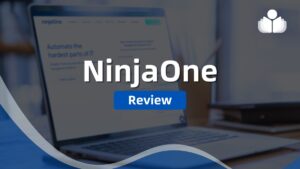Advanced Topics — Board Models and Board Development
© Copyright Carter
McNamara, MBA, PhD, Authenticity Consulting, LLC.
Sections of This Topic Include
Board Models
Board Development (Types Issues, Approaches to Improve, Policy
Governance)
Also consider
Related Library Topics
Learn More in the Library’s Blogs Related to This Topic
In addition to the articles on this current page, also see
the following blogs that have posts related to this topic. Scan
down the blog’s page to see various posts. Also see the section
“Recent Blog Posts” in the sidebar of the blog or click
on “next” near the bottom of a post in the blog. The
blog also links to numerous free related resources.
Library’s
Boards of Directors Blog
Library’s
Nonprofit Capacity Building Blog
Board Models
As mentioned above, Board members often adopt a model or way
of working together. Many times, the model is not intentionally
or explicitly selected by Board members. They just ended up working
together in the same way. There are several types of Board models
and others are emerging; however, the research is not conclusive
about which models are best to use and when. Perhaps the most
valuable result for Board members from reading about models is
first learning the many ways that members can work together and
then by reflecting on their own Board operations.
Some New Nonprofit Board Models
Board Structure
Carver
Governance Model (Policy Governance) (more on this topic below)
Governing for What Matters: A Model for Community-Driven
Governance
Is
a Working Board an “Immature” Board?
Some
Unique Nonprofit Board Models (Part 1 of 2)
Some Unique Nonprofit Board Models (Part 2 of 2)
Board Development (Types Issues, Approaches to Improve, Policy
Governance)
It might help the reader to understand the concept of Board
development by comparing it to Board orientation and Board training.
Here’s one interpretation. Board orientation is orienting Board
members about the unique aspects of the organization, for example,
its history, products and services, other Board members, etc.
Board training is training members about the standard roles and
responsibilities of members of any governing Board. In contrast,
Board development is raising the quality of Board operations up
another level, including, for example, by using a Board pre-assessment,
Board orientation, Board training, coaching of Board members,
and closing with a Board post-assessment to measure any improvement
from the Board development. The following links provide a range
of advice about improving the quality of Board operations. HOWEVER,
reading guidelines about fixing Boards, without knowing the basic
parts and best practices of Boards, is like reading about fixing
a car, but without knowing the basic parts of a car. Therefore,
the reader is strongly encouraged to at least scan through the
list of topics in the table at the top this page before reading
many of the links about struggling Boards and how to “fix”
Boards.
Types of Struggling Boards and Board Issues
Some Types of Broken Nonprofit Boards
Four
Types of “Broken” Boards
Founder’s
Syndrome: Who? Me?
Founder’s
Syndrome: How Organizations Suffer — and Can Recover (a manual)
Micro-Meddling
Boards Undermine Progress
Has
Your Organization Outgrown Its Board?
Dysfunctional Board or Council?
Why
Boards Micromanage and How to Get Them to Stop
What Directors Think: Best (and Worst) Boardroom
Memories
The
Costs of Intense Board Monitoring
Directors
With Drawbacks
How to bring about nationwide change? – a dilemma
How to start looking forward? – a dilemma
When facilitation fails – a dilemma
Hopelessly conflicted? – a dilemma
How to manage excessive demands on time (from a powerful person)? – a dilemma
What a Healthy Board Looks Like
What Does a Healthy Board Look Like? (Nonprofit
and For-Profit)
A
Collective Vision (for the Board)
Make
Your Board Room an Oasis
Approaches to Improving Boards
Why Board Training and Team Building Alone Seldom
Fix Broken Boards
Board
Orientation vs. Training vs. Development
Here’s
Some First Steps to Start “Fixing” a Broken Board
General Principles for Restoring Nonprofit Boards
The Cost of
Governance
Board’s
Evolving Role: From Management to Governance
Nonprofit
Boards: On Saying No to Problem Board Members
Here
We Go Again: The Cyclical Nature of Board Behavior
Enhancing The Board’s Monitoring Role
Good Governance and Crisis
Good Governance
Moving to Good Governance: Digging Into Organizational
Change
Governance
on Nonprofit Boards: Why is it so hard to accomplish?
How
to Improve a Board By Understanding the System of a Board
A Vote for Consensus
Dangerous
Ideas Made Safe
The Nonprofit Board: You Get Out What You Put
In
Passion
in the Board Room
The
Bottom Line on Good Governance
Developing
a High Performing Nonprofit Board
Credible
Board Leadership
The Bottom Line on Good Governance
Focus
v. Fashion – Get Your Board OFF the Latest Fad
Reframing
Governance
Corporate Governance Adrift
Practical Tips for Boards in Times of Crisis
About Policy Governance
Policy-based Governance: If It’s So Great, Why
Isn’t Everyone Using It?
The Top Reasons to Use Policy Governance (copyright
of John Carver)
Policy Governance
in 2002
A Checklist
for Determining the Extent Policy Governance® is Being Used
by a Board
Desirable
Board Member Attributes Under Policy Governance®
›Return to All About Boards of Directors
For the Category of Boards of Directors:
To round out your knowledge of this Library topic, you may
want to review some related topics, available from the link below.
Each of the related topics includes free, online resources.
Also, scan the Recommended Books listed below. They have been
selected for their relevance and highly practical nature.
 Sections of this topic
Sections of this topic
















